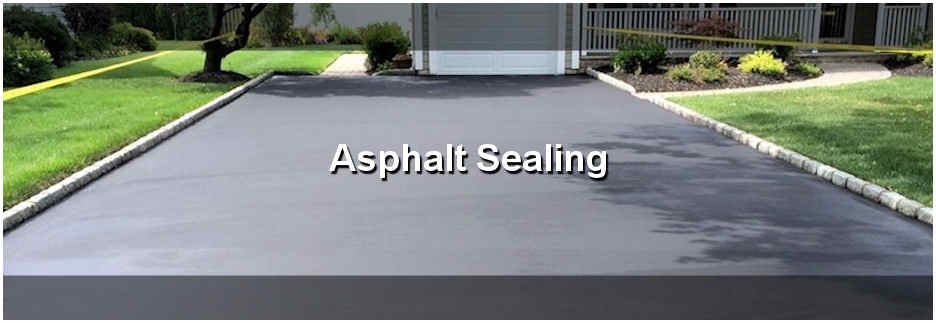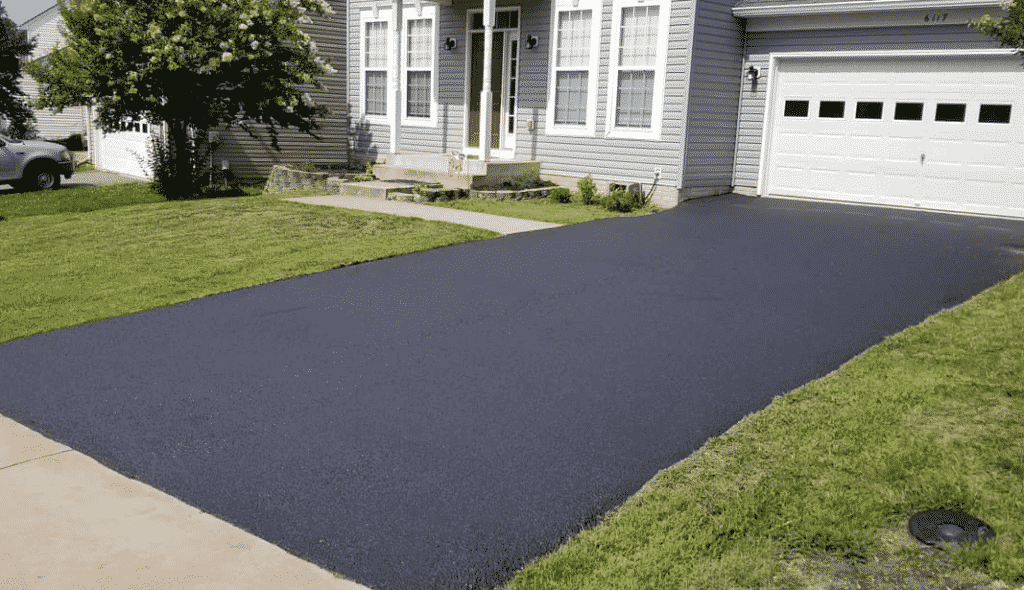Boost Commercial Charm: Hot Mix Asphalt Sealing for Angled Parking Lots
Boost Commercial Charm: Hot Mix Asphalt Sealing for Angled Parking Lots
Blog Article
Warm Mix Asphalt: A Lasting Service for Pavement
Hot Mix Asphalt (HMA) has emerged as a leading sustainable option for sidewalk remedies, providing a myriad of environmental benefits and ingenious technologies. As the need for environment-friendly construction techniques grows, exploring the subtleties of HMA's sustainability can provide useful insights into the future of sidewalk solutions.
Environmental Advantages of Warm Mix Asphalt

Moreover, Warm Mix Asphalt assists to mitigate metropolitan warmth island impacts. Its dark shade soaks up sunlight, lowering the quantity of heat showed back right into the atmosphere contrasted to lighter-colored pavements. This can reduce ambient temperatures in city areas, lowering the demand for a/c and eventually minimizing power usage.
On top of that, Warm Mix Asphalt adds to enhanced stormwater monitoring. Its porous nature permits water to penetrate the sidewalk and reenergize groundwater materials, minimizing overflow and the risk of flooding. These ecological benefits make Warm Mix Asphalt a sustainable choice for paving roads and highways.
Power Efficiency in HMA Manufacturing
Is energy effectiveness a critical consider the manufacturing of Hot Mix Asphalt (HMA)? Definitely. Power plays a considerable duty in the production of HMA, impacting both cost and environmental sustainability. One key element of power performance in HMA production is using warm mix asphalt (WMA) modern technologies (commercial parking lot paving). WMA allows for the blending and placement of asphalt at lower temperatures contrasted to conventional warm mix asphalt, resulting in minimized energy consumption during production. This process not just lowers fuel usage but likewise reduces greenhouse gas discharges, making it a much more environmentally pleasant option.
Additionally, improvements in plant technologies have actually led to more energy-efficient HMA production processes. Modern plants are developed with attributes like recycled asphalt pavement (RAP) handling capacities, effective burner systems, and enhanced insulation, all adding to power financial savings. By optimizing power use in HMA production, the sector can lower its carbon footprint while preserving high-quality pavement materials. Power effectiveness is, as a result, an important factor to consider in ensuring the sustainability of Hot Mix Asphalt manufacturing.
Recyclability of Warm Mix Asphalt
The recyclability of Warm Mix Asphalt (HMA) is an essential element of its sustainability and long-term ecological influence. HMA is one of the most recycled materials in the United States, with over 100 million loads of recovered asphalt sidewalk (RAP) being recycled annually in new Go Here pavement building. Reusing HMA supplies a number of ecological advantages, such as lowering the need for virgin products, decreasing energy intake throughout production, and reducing the quantity of waste sent out to garbage dumps.
The process of reusing HMA involves crushing the existing sidewalk, crushing it right into smaller sized items, and blending it with new accumulation and asphalt binder to produce a recycled mix. On the whole, the recyclability of HMA plays a considerable function in promoting sustainable practices within the pavement industry.

Long-Term Efficiency of HMA
Asphalt pavements show toughness and resilience over an extended duration, showing the long-lasting performance of Warm Mix Asphalt (HMA) The durability of HMA can be credited to its capacity to endure rush hour tons, harsh climate conditions, and the impacts of aging. Studies have revealed that properly designed and appropriately constructed HMA sidewalks can last for twenty years or even more with normal upkeep. The trick to optimizing the lasting performance of HMA exists in utilizing top quality products, complying with finest techniques in construction, and applying efficient upkeep approaches. Appropriate drainage, regular evaluations, and timely repair services are essential for preserving the architectural stability of HMA pavements in time. Additionally, innovations in HMA technology, such as making use of polymer-modified binders and warm mix asphalt, have further improved the resilience and long life of HMA sidewalks. By prioritizing high quality construction and maintenance practices, HMA proceeds to show itself as a sustainable and economical option for durable sidewalk facilities.

HMA: Toughness and Sustainability
Showing both toughness and sustainability, Hot Mix Asphalt (HMA) has come to be a cornerstone in the building of durable pavement facilities - angled parking. HMA's toughness originates from its capability these details to withstand heavy tons, severe climate conditions, and high traffic quantities, making it straight from the source a reliable selection for roadways, highways, and airport terminal paths. The structure of HMA, which normally includes aggregates, binder, and filler, plays a critical role in boosting its long life and resistance to tear and use
In addition, HMA's sustainability lies in its recyclability and energy-efficient manufacturing process. The capability to recycle recovered asphalt pavement (RAP) in brand-new HMA blends lowers the need for virgin products and reduces the environmental impact of sidewalk building and maintenance. In addition, the energy performance of generating HMA exists in its reduced mixing temperature levels compared to other sidewalk materials, bring about lowered power usage and greenhouse gas emissions.
Final Thought
In conclusion, hot mix asphalt (HMA) offers a sustainable solution for pavement with its eco friendly attributes. HMA's recyclability, power effectiveness in manufacturing, and long-term durability make it an environmentally friendly selection for roadway building and construction.
HMA is one of the most recycled products in the United States, with over 100 million loads of reclaimed asphalt pavement (RAP) being reused every year in new pavement building and construction.The procedure of recycling HMA involves crushing the existing sidewalk, squashing it into smaller sized items, and mixing it with new aggregate and asphalt binder to create a recycled mix.Asphalt sidewalks show durability and strength over an extensive duration, reflecting the lasting efficiency of Hot Mix Asphalt (HMA) In addition, advancements in HMA modern technology, such as the use of polymer-modified binders and cozy mix asphalt, have actually further enhanced the toughness and longevity of HMA sidewalks. The capacity to recycle reclaimed asphalt sidewalk (RAP) in new HMA mixtures reduces the need for virgin products and lessens the ecological effect of sidewalk building and maintenance.
Report this page